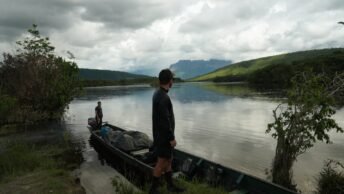Minimalism is more than just a trend; it’s a lifestyle choice that encourages individuals to focus on what truly matters. For many, the journey toward minimalism begins with a conscious decision to declutter both physical and mental spaces. This process often starts with a thorough evaluation of possessions.
One effective method is the “Marie Kondo” approach, which involves asking oneself whether each item sparks joy. If it doesn’t, it’s time to let it go. This not only clears physical space but also creates a mental shift, allowing individuals to appreciate the value of experiences over material goods.
Living with less can also lead to significant financial benefits.
For instance, instead of spending money on the latest gadgets or fashion trends, one might invest in a workshop or a course that enhances their skills.
This shift in focus from consumption to experience fosters a deeper sense of fulfillment and satisfaction, which is often lacking in consumer-driven lifestyles. Additionally, minimalism encourages a more intentional approach to living, where every item owned serves a purpose and contributes to overall well-being.
Key Takeaways
- Embracing minimalism can lead to a more fulfilling and stress-free lifestyle, focusing on experiences rather than material possessions.
- Reliable internet access in remote locations can be achieved through research, investing in portable hotspots, and utilizing local resources such as co-working spaces or cafes.
- Staying organized while living on the road requires a balance between work and personal life, utilizing digital tools for task management and communication.
- Cultivating a healthy work-life balance as a digital nomad involves setting boundaries, prioritizing self-care, and finding ways to disconnect from work.
- Budgeting and financial planning for remote living is essential for long-term sustainability, including tracking expenses, creating an emergency fund, and seeking out cost-effective accommodations and transportation options.
- Connecting with local communities and cultures as a nomad can be achieved through language learning, volunteering, and participating in cultural events and activities.
- Staying safe and healthy while traveling as a digital nomad involves researching destinations, obtaining travel insurance, and prioritizing physical and mental well-being.
- Sustainable living as a nomad includes reducing waste, supporting eco-friendly businesses, and minimizing carbon footprint through conscious travel choices.
Finding Reliable Internet Access in Remote Locations
In an increasingly digital world, reliable internet access is crucial for remote workers and digital nomads. However, finding stable connectivity in remote locations can be challenging. One effective strategy is to research potential destinations ahead of time, utilizing resources like online forums and blogs where fellow nomads share their experiences.
Websites such as Nomad List provide valuable insights into the quality of internet connections in various cities around the globe, helping individuals make informed decisions about where to set up their temporary base.
These devices can provide internet access even in areas where traditional connections are unreliable.
For example, a 4G LTE mobile hotspot can be a lifesaver in rural areas or during travels through regions with limited infrastructure. Additionally, many cafes and co-working spaces cater specifically to remote workers, offering not only reliable internet but also a conducive environment for productivity. Establishing a routine that includes visits to these spaces can enhance both connectivity and social interaction, creating a balanced work environment.
Staying Organized: Managing Work and Personal Life on the Road

Maintaining organization while living a nomadic lifestyle can be daunting, but with the right tools and strategies, it becomes manageable. Digital tools such as project management software and calendar applications are invaluable for keeping track of tasks and deadlines. Applications like Trello or Asana allow users to create boards for different projects, assign tasks, and set due dates, ensuring that work responsibilities are met even while on the move.
Furthermore, utilizing cloud storage solutions like Google Drive or Dropbox ensures that important documents are accessible from anywhere, reducing the risk of losing vital information. In addition to digital tools, establishing a daily routine can significantly enhance organization. Setting specific work hours helps create boundaries between professional and personal time, which is essential for maintaining productivity.
For instance, dedicating mornings to focused work sessions while reserving afternoons for exploration or leisure activities can create a balanced lifestyle. Journaling or using habit-tracking apps can also aid in maintaining focus and accountability, allowing nomads to reflect on their progress and adjust their routines as necessary.
Cultivating a Healthy Work-Life Balance while Living Nomadically
| Aspect | Metric |
|---|---|
| Work Hours | Number of hours worked per week |
| Leisure Time | Amount of time spent on leisure activities |
| Physical Activity | Frequency and duration of exercise |
| Social Interaction | Number of social events attended |
| Mental Health | Self-reported mental well-being |
Achieving a healthy work-life balance is particularly crucial for digital nomads who often blur the lines between work and leisure. One effective approach is to establish clear boundaries regarding work hours and personal time. This might involve setting specific times during the day when work is prioritized and ensuring that these hours are respected.
For example, a nomad might choose to work from 9 AM to 1 PM and then dedicate the rest of the day to exploring their surroundings or engaging in recreational activities. Incorporating self-care practices into daily routines is another essential aspect of maintaining balance. Regular exercise, mindfulness practices such as meditation or yoga, and ensuring adequate sleep can significantly impact overall well-being.
Engaging with local communities through group activities or classes can also provide social interaction and support, which are vital for mental health. By prioritizing both work responsibilities and personal well-being, digital nomads can create a fulfilling lifestyle that nurtures both professional ambitions and personal growth.
Budgeting and Financial Planning for Remote Living
Effective budgeting is fundamental for anyone considering a nomadic lifestyle. The first step in financial planning involves understanding one’s income sources and estimating monthly expenses based on potential destinations. This requires thorough research into the cost of living in various locations, which can vary dramatically from one place to another.
For instance, living in Southeast Asia may offer significantly lower costs compared to Western Europe or North America. Tools like Numbeo provide comprehensive data on living costs worldwide, enabling nomads to make informed financial decisions. Creating a budget that accounts for both fixed expenses—such as accommodation and insurance—and variable costs—like food and entertainment—is essential for sustainable living.
Utilizing budgeting apps can help track spending in real-time, allowing individuals to adjust their habits as needed. Additionally, setting aside an emergency fund is crucial for unexpected expenses that may arise during travels. This financial cushion provides peace of mind and allows for greater flexibility in choosing destinations without the constant worry of financial strain.
Connecting with Local Communities and Cultures as a Nomad

Enhancing Travel Experiences through Local Interactions
Engaging with locals not only enhances the travel experience but also fosters meaningful connections that can lead to lasting friendships. Participating in community events, workshops, or local classes can provide insights into cultural practices while offering opportunities for social interaction.
Building Connections through Shared Experiences
For example, joining a cooking class in Italy not only teaches culinary skills but also allows for interaction with locals who share their traditions and stories. Social media platforms and online communities dedicated to nomadic lifestyles can also facilitate connections with like-minded individuals. Websites like Meetup or Facebook groups often host events where travelers can gather, share experiences, and build networks.
Fostering Personal and Professional Growth
These interactions can lead to collaborative projects or even partnerships that enhance both personal and professional growth. By actively seeking out opportunities to connect with local communities, digital nomads enrich their travels while contributing positively to the places they visit.
Staying Safe and Healthy while Traveling as a Digital Nomad
Safety and health are paramount concerns for anyone traveling extensively as a digital nomad. One of the first steps toward ensuring safety is conducting thorough research about destinations before arrival. Understanding local customs, laws, and potential risks can help avoid dangerous situations.
Additionally, registering with local embassies or consulates provides an extra layer of security by ensuring that authorities are aware of one’s presence in the country. Health considerations are equally important; maintaining regular medical check-ups and vaccinations is essential before embarking on travels. Carrying a basic first-aid kit can address minor health issues on the go, while travel insurance provides coverage for unexpected medical emergencies.
Moreover, staying active through regular exercise and maintaining a balanced diet contributes significantly to overall well-being while on the road. Engaging in local physical activities—such as hiking or yoga classes—can also enhance health while providing opportunities for social interaction.
Sustainable Living: Reducing Your Environmental Impact as a Nomad
As awareness of environmental issues grows, many digital nomads are seeking ways to minimize their ecological footprint while traveling. One effective approach is adopting sustainable travel practices such as using public transportation instead of renting cars or taking flights whenever possible. This not only reduces carbon emissions but also allows for more authentic interactions with local communities.
Additionally, choosing eco-friendly accommodations—such as hostels that prioritize sustainability or eco-lodges—can significantly reduce environmental impact during travels. Many of these establishments implement practices like recycling programs or energy-efficient systems that contribute positively to local ecosystems. Furthermore, being mindful of consumption habits—such as reducing plastic use by carrying reusable water bottles and shopping bags—can foster a more sustainable lifestyle while traveling.
By embracing these practices, digital nomads not only contribute positively to the environments they visit but also inspire others to consider sustainability in their own travel choices. The journey toward sustainable living is ongoing; every small action contributes to a larger movement toward preserving our planet for future generations while enjoying the freedom that comes with a nomadic lifestyle.
If you’re a digital nomad looking for ways to improve your productivity while on the go, you may want to check out this article on how the Pomodoro Technique can help you stay focused and efficient. The Pomodoro Technique is a time management method that breaks work into intervals, typically 25 minutes long, separated by short breaks. By incorporating this technique into your daily routine, you can maximize your productivity and make the most of your time as a nomad. Check out the full article here.








